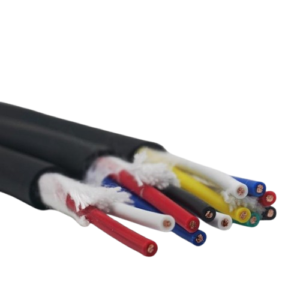1. What Speaker Cables Do Australians Love?
Australian audiophiles prioritize high-conductivity materials like 6N-8N oxygen-free copper (OFC) and single-crystal copper (OCC) for minimal signal loss. Brands like PALIC (known for its Ruby Series with multi-strand OCC conductors) and TARA LABS (renowned for RSC Square-Core Copper technology) are local favorites.
Home theater enthusiasts often opt for shielded cables with robust insulation (e.g., Teflon/PVC layers) to reduce electromagnetic interference. Pro audio users lean toward heavy-duty speaker wires like Sommer’s Quadra Blue series (6N copper, 4mm² conductors), especially for long-distance installations.
2. Popular Speaker Cable Brands in Australia’s Supply Chain
Australian distributors and retailers frequently stock:
PALIC: Their Diamond Series (single-crystal silver conductors) and Ruby Series dominate the mid-high tier market.
Krix: A legacy Australian brand offering architectural and commercial-grade audio solutions.
JBL Professional: Widely used in pro setups like the SRX900 series.
Global brands like Sommer (Germany) and Copper Colour (China) for budget-friendly yet reliable options.
Local distributors like Signals Systems and CMI Audio emphasize cables with certified purity levels (e.g., 4N-8N) and low impedance (<0.1Ω/m).
3. How to Choose High-Quality Speaker Cables

Key Features to Prioritize:
Conductor Material: Avoid copper-clad aluminum (CCA). Opt for OFC (99.97%+ purity) or OCC (single-crain structure).
Shielding: Look for dual-layer shielding (e.g., braided + foil) to block RF/EMI noise.
Certifications: Check for CE/ROHS compliance and genuine 3rd-party lab reports.
4. Avoiding Shady Speaker Cable Suppliers
Vague specs: Suppliers emphasizing “200-core” instead of AWG/mm² measurements.
Fake “imported” claims: Verify origins through customs codes or brand registries.
No testing data: Legitimate suppliers provide impedance/THD graphs.
Always request sample testing for resistance (<0.2Ω/m) and flexibility (no cracking after bending).
5.Final Thoughts
Australia’s speaker cable market thrives on performance transparency and localized compliance. Whether you’re an audiophile seeking PALIC’s Ruby Series or a retailer sourcing OEM cables like Chuanpu’s shielded lines, prioritize verified materials and supplier credibility. Stick to these rules, and your sound system (or inventory) will stay noise-free and Google-friendly!